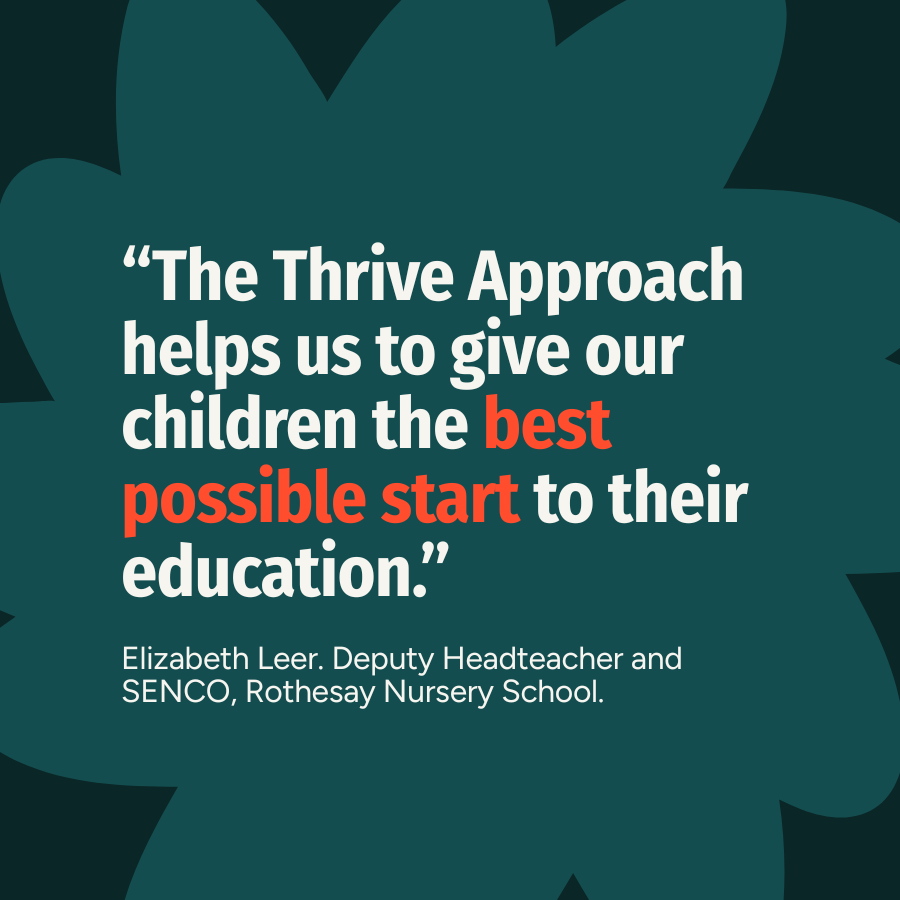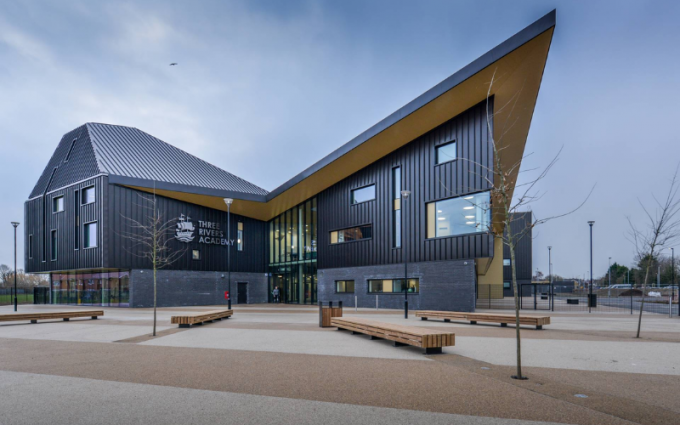Rothesay Nursery School in Luton has embedded the Thrive Approach into every aspect of its practice, creating a nurturing and emotionally supportive environment for its children. In this case study, Deputy Headteacher and SENCO Elizabeth Leer shares Rothesay’s Thrive journey, explaining how it has helped staff support children’s emotional wellbeing and create a calm learning environment.
Introducing Thrive
We are a Local Authority Maintained nursery school and are part of the South Area Partnership, a group of schools in Luton. We have around 98 children on roll, with new intakes every term.
Our Thrive journey started in 2018 when myself and a colleague were sent on an introductory Thrive training course. I don’t mind saying I was sceptical at first because I thought that we already had a nurturing, positive approach.
When I did the course, it was amazing. It just confirmed so many things for us about how adults should be around children in an Early Years setting. It has given us confidence and a framework to see how we need to be around our children.
I have a psychology degree and the Thrive training was a wonderful refresher around neuroscience and how the brain works in the Early Years. Thrive is a consistent approach that we have applied consistently and it runs across absolutely everything we do.
A toolkit to help children
.jpg)
We describe Thrive as a toolkit that allows us to support our children effectively. In our area, we have got a lot of vulnerable children, a lot of children with English as an Additional Language and we support children with complex SEND needs. Thrive is something positive that helps us to support all our children. We’ve found it especially helpful with children who are dysregulated or who are showing distressed behaviour.
We have found things like the Vital Relational Functions (VRFs) are great even for really young children. If they go into meltdown, we know what we need to do to help them and we understand what is going on in their brains and how this is linked to their emotions. Since the pandemic, a lot of my time has been taken supporting children who are very quiet, rather than dysregulated and we’ve found that Thrive has also been really helpful with these children.
Helping to shape children’s futures
Thrive is a constant reminder about how important it is to know about neuroscience and how children’s brains are developing, especially during the early years. We can almost be like brain surgeons because children’s brains are able to forge new connections and adapt. What we do here really is shaping children’s futures.
When we had our last visit from Ofsted, the inspectors commented on how calm things were here. When we told them we used Thrive, they evidently knew what that meant and didn’t ask us anything else around wellbeing. But if we had needed to produce evidence of how our approach to wellbeing, we could have done because of the data that is available to us from Thrive-Online.
As well as one-to-one work, we also use class action plans from Thrive-Online. Because we have new children starting every term, we need to use Thrive-Online differently to schools and I’ve been talking to the Thrive team about how we can use it more effectively. I’ve found that the support that is available from Thrive is excellent whenever we have a question or want to improve an aspect of our practice.
A calm environment
We have noticed that our children and staff are much calmer as a result of Thrive. We know that the nursery school is a calm environment and we have a consistent approach to how we communicate with the children. We don’t have mixed messages and we’re very clear about what we say and how we say it. One of the most useful things has been to see the impact that curiosity has. When we see behaviour, we are curious about what is causing it. We know that our children may have experienced all sorts of things so we always ask ourselves, ‘why is this child behaving in this way?’
The Early Years is such an important time for children, there is so much brain development that takes place and if a child has a positive experience of education during this time, it really sets them up for future learning. The Early Years are the foundation stones of a child’s education that make sure that children can learn to the best of their ability in the future. We are passionate about Early Years learning and the difference it can make to a child’s future. The Thrive Approach helps us to give our children the best possible start to their education.

Pass it on
Small actions can lead to a big ripple effect. If you enjoyed this post or found it helpful, please consider supporting us in our mission to help every child and young person feel safe, supported and ready to learn by sharing it using the social media buttons below.
Want to join a like-minded community of senior leaders and classroom staff benefitting from insights and strategies to improve attendance, behaviour and attainment? Add your email address below. (It’s easy to unsubscribe).

_680.jpg)
_680.png)
_680.jpg)

